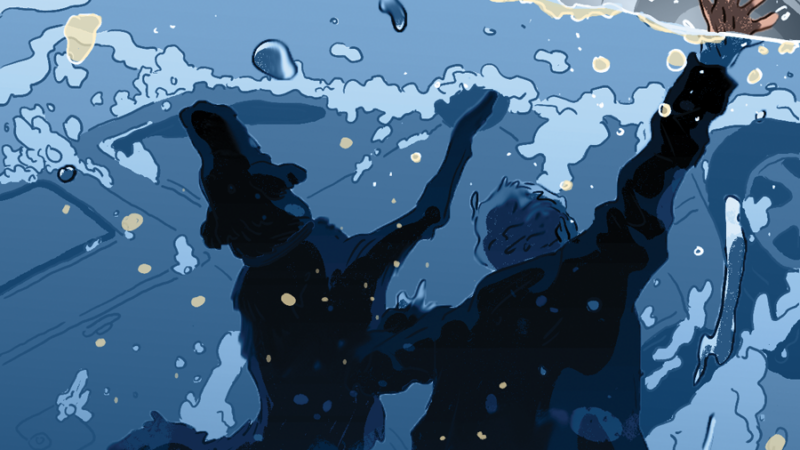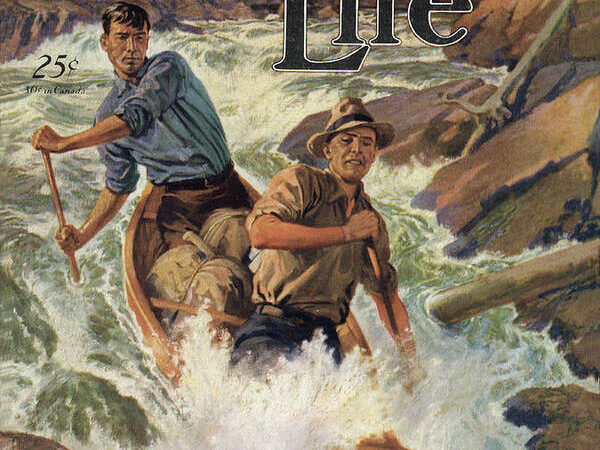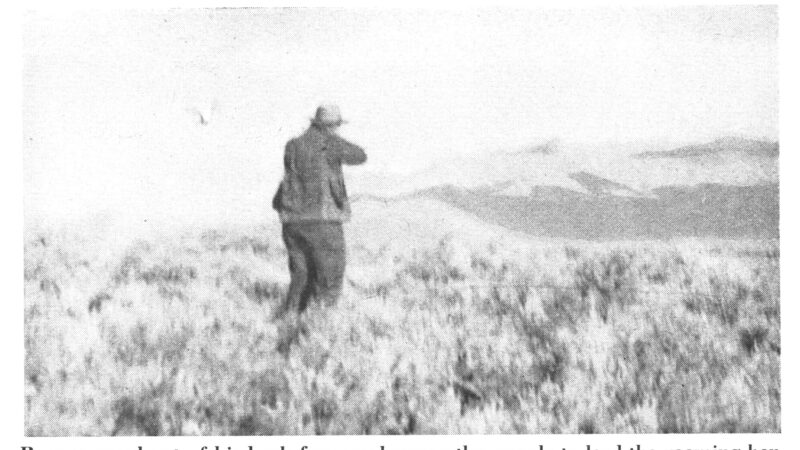Hunter’s First Deer Is an Old, 8-Point Leucistic Buck
To notch your deer tag, everything has to line up just right. Just ask John Bralley from Draper, Virginia. In the days leading up to his first successful deer hunt, the 40-year-old happened to make a new friend, secure an invite to a new patch of land, get rare vacation time, and borrow a muzzleloader. Sitting in a tree stand, he used the loaned gun to tag his first deer: a one-of-a-kind leucistic 8-pointer.
On the morning of Nov. 10, Bralley and his friend Matt Stanley, whom he’d recently met through their sons’ peewee football league, went out to Stanley’s deer lease. It was muzzleloader season but Bralley didn’t own a muzzleloader, so Stanley offered the use of his own. Stanley was so intent on Bralley’s success (they’d already hunted a few days without luck) that he didn’t mind sharing.
The pair climbed into a double tree stand on the edge of a logging cut. At 7:30 a.m., a white-bodied buck walked out into the cut about 250 yards away.
“[Stanley] grunted, rattled horns, doe bleated — he threw the book at him,” Bralley tells Outdoor Life. “But the buck never stopped and disappeared into the woods.”
Bralley and Stanley couldn’t believe what they’d seen. For the next 45 minutes, they talked about the buck, and how no one else on the lease had seen or gotten it on camera (or, if they had, they didn’t share those details). Then at 8:35 a.m., the buck reappeared.
“I look up and this deer is standing in front of me at around 37 yards,” Bralley says. “The muzzleloader is still sideways on the tree stand across the rail. And we just stared it down for a long time. Well, it may not have been a long time, but it felt like a long time.”
The buck was looking directly at Bralley and Stanley for a while, but eventually it dropped its head. Bralley shouldered the muzzleloader and, just as the buck started turning, Stanley grunted and stopped it. Bralley squeezed the trigger.
The buck bolted about 50 yards before falling in the middle of the cut. Bralley and Stanley were both shaking so hard they struggled to climb down from the stand. Stanley told Bralley he thought he might pass out.
“We were worried that stand was going to fall right down from how bad we were shaking up there,” Bralley says, laughing.
Only when they approached the buck did they realize just how unique it was. Most leucistic deer are only a few dark facial features away from being albino, unlike piebald deer who have distinct patches of normal, brown pigmentation, according to the Virginia Department of Wildlife Resources. But this buck’s body was mostly white and dappled with light caramel and gray hair. A smoky charcoal color was present on its face and dotted its ears, the hair around the base of its ears was reddish, and its tongue was white. Most peculiar of all, perhaps, is that the end of its tail, which was also white, looked like someone had dipped it in black paint.
“Leucism is a genetic condition that causes animals to lose some or all of the pigmentation in their hair, and there can be a wide range of coat variations, from partly white or gray to almost entirely white,” Virginia DWR deer program manager Justin Folks said. “Leucism differs from albinism in that albino deer have zero pigment, leading to all-white coats, pink noses, pink hooves, and red eyes. Piebald deer are more common than leucistic and albino deer, but tend to have patches of white hair among patches of brown.”
Bralley looks forward to getting a pedestal mount of the buck.
“My taxidermist, Anthony Blackburn, is a two-time national champion and six- or seven-time state champion in Virginia. He’s done about 6,000 deer,” Bralley says. “He said he’s never seen one like this.”
Read Next: Teen Tags Her First Deer, a Piebald Buck, with Help from Grandpa
Although most leucistic and albino deer die younger, since they’re spotted more easily by hunters and other predators, Bralley aged his buck around 5.5 years old. The deer weighed 179 pounds dressed, with a green-score of about 130 inches, thanks to good mass and tall main beams.
Bralley takes little credit for tagging the buck.
“I don’t want to sit here like I’m some big Buckmaster deer slayer. I’m really not,” Bralley says. “[Stanley] took me on his lease with his muzzleloader. I just happened to be in the right place at the right time and it never would have happened without him.”
The post Hunter’s First Deer Is an Old, 8-Point Leucistic Buck appeared first on Outdoor Life.
We may earn revenue from the products available on this page and participate in affiliate programs. Learn More ›
Source: https://www.outdoorlife.com/hunting/hunter-first-deer-leucistic-buck/



